Introduction: The Evolving Role of Non-Disclosure Agreements in Qatar’s Legal Framework
In today’s dynamic Gulf business environment, safeguarding proprietary information is a critical priority. For UAE-based organizations with interests or operations in Qatar, the effective use of Non-Disclosure Agreements (NDAs) is not merely a best practice—it is a vital compliance tool in cross-border commercial dealings. Recent legal reforms in the GCC region, including substantial updates to UAE federal law and evolving approaches in Qatar, have made it imperative for executives, HR professionals, and legal advisors to understand the mechanics and enforceability of NDAs within Qatar’s jurisdiction. This comprehensive article examines the legal underpinnings, strategic implications, and best practices for deploying NDAs in Qatar, offering robust guidance to UAE organizations in light of recent laws pertaining to confidentiality, data protection, and contract enforcement. As the GCC drives toward harmonized commercial regulations and enhanced investment environments, your NDA strategy must reflect both legal sophistication and operational agility.
Table of Contents
- Legal Overview of NDAs in Qatar
- Key Structural and Legal Requirements
- Enforceability and Judicial Attitude Toward NDAs
- Comparison with UAE NDA Law: Key Provisions and Differences
- Risks of Non-Compliance and Mitigation Strategies
- Practical Guidance: Drafting, Negotiating, and Implementing NDAs in Qatar
- Case Studies: Real-World Scenarios and Lessons Learned
- Conclusion: Strategic Takeaways and Forward-Looking Compliance Best Practices
Legal Overview of NDAs in Qatar
Statutory Context: Where NDAs Fit Within Qatari Law
Non-Disclosure Agreements (NDAs) in Qatar draw their legal strength from a combination of contractual principles outlined in the Qatari Civil Code (Law No. 22 of 2004) and the Qatari Penal Code (Law No. 11 of 2004), particularly in provisions addressing confidentiality, protection of commercial secrets, and privacy. Notably, Qatar’s recently enacted Personal Data Privacy Protection Law (Law No. 13 of 2016) further reinforces the legal environment supporting NDAs, especially when sensitive data is involved.
The Civil Code enshrines the principle of ‘freedom of contract’, empowering individuals and entities to structure binding confidentiality arrangements. However, enforceability turns on careful drafting and an understanding of local judicial practice, especially regarding the specificity of obligations, the legitimate interests protected, and the proportionality of stipulated remedies.
Key Official Sources Referenced
- Qatar Civil Code (Law No. 22 of 2004)—Chapter on Contracts
- Qatari Penal Code (Law No. 11 of 2004)—Articles on Breach of Trust and Confidentiality
- Qatar Personal Data Privacy Protection Law (Law No. 13 of 2016)
- Ministry of Justice—Official Guidance Notes 2023
Key Structural and Legal Requirements
Essential Elements of a Qatari NDA
| Essential Clause | Legal Rationale | Typical Pitfalls |
|---|---|---|
| Definition of Confidential Information | Qatari courts require precise identification of what is protected. | Over-broad, vague definitions often ruled unenforceable. |
| Obligation Scope | Clear duties regarding non-use and non-disclosure are critical. | Ambiguity in obligations risks judicial rejection. |
| Term and Duration | Reasonable duration aligned with commercial need is favored. | Indefinite terms may be contested as oppressive or unnecessary. |
| Permitted Disclosures | Mandatory exceptions (law, court order) must be defined. | Failure to include legal exceptions weakens the NDA’s authority. |
| Remedies and Penalties | Pecuniary penalties must be proportionate and non-punitive. | Excessive stipulated penalties likely to be reduced by courts. |
| Jurisdiction and Governing Law | Essential for cross-border dealings; Qatar courts may decline foreign jurisdiction. | Overlooking mandatory local law requirements jeopardizes enforcement. |
Drafting Insights from Recent Judicial Rulings
Qatari courts have demonstrated a preference for NDAs that demonstrate:
- Precision: Clauses must avoid sweeping, catch-all language.
- Clarity of Legitimate Interest: The NDA must protect a justifiable commercial or technical interest.
- Fairness: Terms perceived as overreaching or punitive toward the receiving party may be struck down or revised judicially.
Enforceability and Judicial Attitude Toward NDAs
Contract Law Principles and Their Practical Impact
While Qatar’s Civil Code upholds contractual freedom, enforceability ultimately hinges on whether the NDA satisfies these criteria:
- Clear, Lawful Purpose: Protection of legitimate commercial or technical information.
- Definiteness of Terms: Unambiguous articulation of what is confidential and how it must be protected.
- Proportionate Remedies: Courts are empowered to modify or reject penalties they deem excessive under the Civil Code’s general doctrines of fairness.
- Compliance with Mandatory Law: The NDA cannot conflict with public order provisions, mandatory disclosure obligations (e.g., to regulators), or fundamental employment rights.
Impact of Qatar’s Data Protection Law
The Data Privacy Protection Law introduces explicit obligations regarding the handling, transfer, and safeguarding of personal data. When NDAs intersect with personal data (e.g., customer information, HR records), their design and implementation must comply with data subject rights, breach notification protocols, and official transfer requirements, particularly for cross-border sharing with UAE entities.
Comparison with UAE NDA Law: Key Provisions and Differences
Cross-Jurisdictional Challenges for UAE Companies
UAE organizations operating in or contracting with entities in Qatar must be acutely aware of the legal distinctions that affect NDA enforceability and risk management.
| Provision | Qatari Law | UAE Law |
|---|---|---|
| Statutory Support | Qatari Civil Code (No. 22 of 2004), Data Protection Law (No. 13 of 2016) | UAE Civil Transactions Law (No. 5 of 1985, as amended), Federal Decree-Law No. 45 of 2021 on Data Protection |
| Enforceability of Penalties | Court may reduce penalties deemed excessive; punitive damages not favored | Liquidated damages recognized if reasonable and not punitive |
| Duration of Obligations | Courts scrutinize for necessity and fairness | Longer durations may be upheld if justified by legitimate interest |
| Scope of Confidentiality | Over-broad clauses likely unenforceable | Greater flexibility, but overreach still curtailed |
| Public Policy Limitations | Mandatory law trumps, especially labor rights | Similar limitation, with focus on employment restrictions |
| Governing Law and Jurisdiction | Qatar may resist exclusive foreign law/jurisdiction in local context | Civil law system, international parties often stipulate foreign law |
Visual Suggestion
Suggested Visual: Comparison Chart of NDA Provisions
A comparative graphic illustrating the variation between Qatari and UAE NDA legal requirements can significantly aid client understanding.
Risks of Non-Compliance and Mitigation Strategies
Legal and Operational Risks
- Contractual Invalidity: Poorly drafted NDAs risk being declared wholly or partly unenforceable by Qatari courts.
- Disclosure of Confidential Data: Breaches can result in liability for both pecuniary damages and injunctive relief, particularly where sensitive commercial or personal data is involved.
- Regulatory Sanctions: Non-compliance with Qatar’s Data Privacy Law can lead to administrative fines, reputational harm, and blacklisting in public procurement contexts.
- Employee and Partner Litigation: Employees and commercial partners may pursue claims alleging NDAs violate their statutory rights or public order.
Compliance Strategies for UAE Organizations
- Undertake local legal review: All NDA templates must be assessed and, if necessary, localized to satisfy Qatari judicial and regulatory expectations.
- Define data flows: Map information exchanges to confirm alignment with both Qatari and UAE data protection laws.
- Implement training and compliance controls: Regularly educate employees on their confidentiality obligations and reporting procedures for suspected breaches.
- Establish clear breach escalation protocols: Rapid response mechanisms are critical for addressing alleged or actual data disclosures.
- Monitor regulatory updates: Because both Qatar and the UAE are evolving their compliance landscapes, maintain ongoing engagement with legislative and regulatory reform.
Table: Penalty Overview for NDA Breaches in Qatar
| Type of Breach | Civil Penalties | Punitive Measures |
|---|---|---|
| Contractual NDA Breach | Actual damages, court-moderated penalties | Rarely criminal, unless overlapping theft/fraud |
| Personal Data Breach | Administrative fines (per Data Protection Law) | Potential blacklisting, reputational consequences |
| Disclosure of Trade Secrets | Damages, possible injunction | Criminal sanctions in aggravated cases |
Practical Guidance: Drafting, Negotiating, and Implementing NDAs in Qatar
Best Practices for UAE Companies with Qatari Operations or Partners
- Customisation: Avoid generic NDAs. Tailor each agreement to the purpose, business sector, and type of information involved.
- Incorporate Local Law References: Explicitly cite relevant Qatari statutes (e.g., Civil Code Article references; Data Protection Law).
- Clarify Cross-Border Data Transfers: Articulate protocols for sharing data between UAE and Qatari jurisdictions in accordance with both legal frameworks.
- Keep Language Plain and Translatable: Arabic remains the operative language for court filings; consider dual-language agreements where practical.
- Build in Fair Remedies: Courts are more likely to enforce penalties that reflect real, foreseeable loss or harm.
- Review by Dual-Qualified Counsel: For complex or high-value relationships, secure advice from lawyers licensed in both the UAE and Qatar.
Visual Suggestion
Suggested Visual: NDA Compliance Checklist Flow Diagram
A process flowchart illustrating step-by-step compliance with Qatari NDA requirements will clarify roles for in-house legal and HR teams.
Case Studies: Real-World Scenarios and Lessons Learned
Case Study One: Multi-National Engineering Joint Venture
Scenario: A UAE engineering consultancy enters into a JV with a Qatari partner to bid on a public infrastructure project. The UAE party circulates its standard English-law NDA template for local employees and consultants.
Challenge: The Qatari JV partner objects on the grounds that the NDA’s indefinite duration and foreign law choice clause violate Qatari law and offend public order.
Consultancy Insight: The NDA requires revision to (a) specify a time-limited confidentiality period linked to the contract term, (b) recognize mandatory Qatari law, and (c) set dispute resolution either through local courts or by arbitration with a Qatar seat.
Case Study Two: Breach of Confidentiality by Local Employee
Scenario: A Qatari branch of a UAE tech company discovers an employee has disclosed a proprietary algorithm to a competitor, in clear violation of the signed NDA.
Result: The Qatari court enforces the NDA, but reduces the contractual penalty from QAR 1 million to QAR 200,000, in line with the actual assessed loss and proportionality principles under the Civil Code.
Practical Takeaway: Always calibrate penalty clauses to likely, measurable harm. Overreach exposes companies to downward court adjustment and, potentially, split litigation costs.
Case Study Three: Data Transfer and Regulatory Scrutiny
Scenario: A UAE-headquartered healthcare group transfers patient data to a Qatari affiliate for analytics. A routine data audit by the Qatari regulator reveals that the NDA fails to address cross-border data transfer requirements set in Law No. 13 of 2016.
Result: The firm is fined and required to implement a revised NDA policy aligning with Qatari data localization rules.
Compliance Insight: Harmonize NDA and data protection policies in both legal systems to prevent operational, regulatory, and reputational risk.
Conclusion: Strategic Takeaways and Forward-Looking Compliance Best Practices
As regulatory convergence increases across the Gulf, Qatari NDAs will remain a core legal instrument but will require ever more rigorous, localized mapping and implementation. UAE organizations must embrace a proactive, compliance-driven approach: regular template reviews, robust dual-jurisdiction legal input, and operational controls that anticipate both practical business needs and evolving regulator expectations. These steps are essential to foster trust, minimize risk, and unlock the full value of intellectual capital in high-stakes cross-border dealings. Keeping abreast of legal updates released by the Qatari Ministry of Justice and the UAE Federal Legal Gazette will enable businesses to adapt swiftly—securing confidences, advancing commercial success, and ensuring enduring compliance in a rapidly changing legal landscape.
Best Practice Checklist for 2025 and Beyond:
- Regularly update NDA templates for legal and regulatory changes.
- Conduct legal due diligence before executing cross-border contracts.
- Provide focused training to executives, HR, and legal teams regarding NDA management in Qatar.
- Integrate NDA compliance into broader data governance and cyber-risk strategies.
For tailored legal support regarding NDAs and confidentiality arrangements in Qatar or the wider GCC, contact our multidisciplinary legal consultancy team today.




